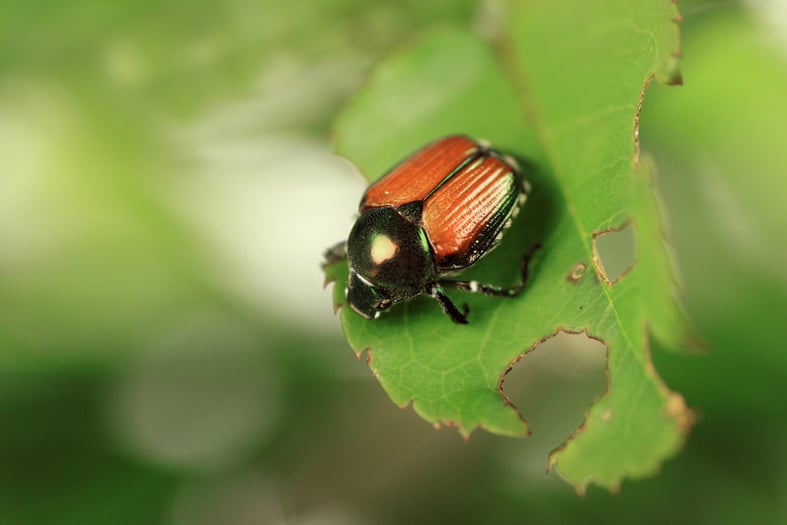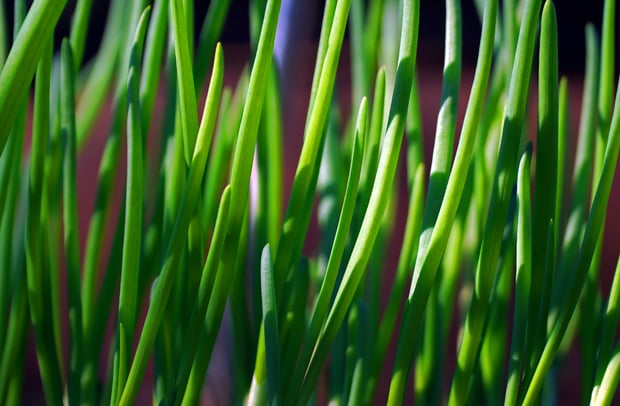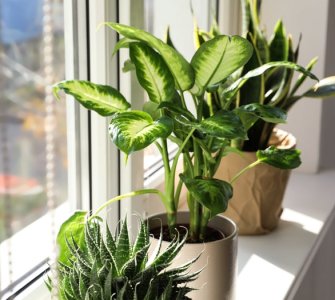Like most rose growers, I detest Japanese beetles. Heartbreaking is only one word I can find that aptly describes their sudden appearance on my beloved rose bushes. Within hours, flourishing summer blooms can be destroyed, and all the hours of hard work, love, care, and attention can resemble a garden war zone.

8 Ways to get rid of Japanese beetles on rose bushes:
- Pick them off by hand
- Spray them with soapy water
- Use neem oil as a foliar spray
- Make a trap
- Cover with barrier netting
- Use a bug vacuum
- Plant beetle repelling companion plants
- Prune and spray your roses
If you have the misfortune of spotting a few of these unwelcome intruders while you are enjoying your rose garden, it’s time to spring into action immediately! Time is of the essence, as Japanese beetles can cause immense damage very quickly.
Table of Contents
8 Way To Get Rid Of Japanese Beetles On Roses
It is natural to experience an instant panic reaction when you see the characteristic iridescent shimmer of Japanese beetles on your rose plants. Although the pests are never a good sign, they are big enough to see clearly, and once they get started on a plant, they are pretty slow-moving.
The challenge of treating insects is that many are beneficial, and we must take care of them to sustain a healthy natural environment. While we would love to simply blast our roses with a chemical super-shield to keep them safe, it is essential not to harm our native beetles, bees, butterflies, and birds.
Unfortunately, adult Japanese beetles can fly, so preventing them isn’t always possible. No matter how you try to avoid these pests in your garden, if they are anywhere in your neighborhood, they can come and feast on your plants.
Let’s find out what practical steps to take to eradicate adult beetles from your rose bushes.
1. Pick Insects Off By Hand
This is always my first reaction. I want the pests off my roses as quickly as possible. Drop them into a soapy water solution, so they drown and don’t somehow crawl back onto your plants.
(I learned the hard way that Japanese beetles stink, so be sure to wear gloves before you start plucking them off your roses!)
2. Spray Them With Soapy Water
One easy way to take on the Japanese beetle challenge is simply to spray the insects with a dilute dish soap solution. Mix one teaspoon of dish soap with 4 cups of water in a spray bottle and blast the beetles with this eco-friendly solution.
They usually fall off pretty quickly as the mixture suffocates them. I’m quite impatient and often give the plant a little shake to get them to lose their grip after I’ve coated them in the dish soap mixture.
It’s perfectly safe for birds or other little predators to eat the beetles once they are on the ground, and the dish soap coating won’t harm them.
3. Use Neem Oil Foliar Spray
As most of you know, neem oil is my go-to organic pesticide solution for indoor bugs. It turns out this wonder substance also reduces Japanese beetle feeding behavior on my roses. It must be sprayed on as soon as the first few beetles make their unwelcome appearance.
It’s really simple to make. Add 4 teaspoons of neem oil to a gallon of water. Load your spraying tool and wait for the right time of day. Get to work at dusk or dawn and soak every part of the plant. Make sure you spray under the leaves and any hiding places.
Spraying the visible part of your rose plant with this neem solution will deliver justice to the adult beetles on your roses, but there may be more waves of new beetles waiting to emerge from the ground. Keep your neem mixture close at hand and reapply it every day or two until the Japanese beetles on your plants are entirely gone.
4. Try A Trap – Cautiously
A beetle trap can go two ways. It can either be an excellent tool to lure beetles away from your prized plants, or it may act as a Japanese beetle party invitation for every beetle in the district.
A Japanese beetle trap should only be used as an occasional, temporary tool to lure the insects away from your valuable plants. Never ever hang a beetle trap near your roses, and be sure to monitor it properly and empty the catching bag promptly when it gets full.
Japanese beetle traps like this one from The Safer Store are inexpensive and will undoubtedly attract a lot of beetles – just be sure that is the best strategy for your situation.
Traps have bug-attracting pheromones, and not all the beetles that are attracted to the trap will go inside – so adding a trap near your roses may amplify the number of beetles (horror!).
5. Barrier Netting
Desperate gardening times call for desperate measures, and an invasion of Japanese beetles can quickly decimate your valuable plants. The feeding frenzy usually only occurs for a few weeks each year, starting from around June, and barrier netting can work well to keep insects off specific rose bushes.
Just be sure to use a very fine netting so the pesky bugs can’t get through.
Remember that covering your plants entirely will also keep beneficial bugs out, so fine mesh should only be used as a temporary measure.
6. Suck The Beetles Off With A Vacuum
A handheld vacuum on the lowest setting is helpful to remove beetles from your plants if you can’t bare to touch them. This method works better on less delicate parts of the plant, like the stems. It is also a quick way to collect them off the ground after you’ve sprayed them with soapy water.
Remember that once you’ve used your handheld vacuum for this purpose, it may not smell great afterward!
7. Add Some Repel Plants
Instead of using a Japanese beetle trap that may attract more beetles to the area, many gardeners have found that planting deterrent plants near their roses is a better strategy. Fortunately, there are some really useful herbs like chives and garlic that these beetles avoid.

Repel plants are easy to grow in planters, even in small spaces. When Japanese beetle season comes around, strategically move your defense plants between your rose bushes.
8. Nip And Spray Your Rose Plants
Japanese beetles are especially attracted to rose blossoms, but once they get stuck into a plant, they destroy it entirely. If you have noticed that beetle season is underway, it is a good idea to enjoy your rose blossoms as cut flowers indoors for a few weeks rather than allowing them to open on the bushes.
Spray the rest of the plant regularly with a natural pesticide like Neem oil to give your roses a fighting chance of getting through the dreaded beetle season.
What Is The Best Spray For Japanese Beetles?
There are plenty of highly effective pesticide sprays available that will annihilate Japanese beetles, but many of them will also kill bugs indiscriminately. The best spray for beetles is neem oil since it doesn’t harm other valuable insects and works well as a preventative measure – so the nasty Japanese beetles move on and leave my roses alone!
How Do I Keep Japanese Beetles Off My Roses?
Japanese beetles are relentless bugs that are extremely difficult to keep off their favorite plants – unfortunately, roses are on the top of their menu. Unless you use mesh netting, the best method to keep them off your roses is to physically remove them and make your roses as unattractive as possible to beetles.
You can do this by:
- Removing blooms promptly
- Planting deterrent plants like catnip, garlic, chives, or geranium nearby
- Regularly spraying your foliage with a neem oil solution
Will Roses Come Back After Japanese Beetles?
The sight of a rose plant that has been skeletonized by Japanese beetles can be distressing. Take heart – most times, the plant may be down, but it may not be completely out, especially if you removed the pesky beetles as soon as you spotted them.
The best thing to do after Japanese beetle damage is to prune the roses in the same way as you would normally do in the fall. Cut back all heavily damaged areas. While you may not get a lot of blooms or foliage growth immediately, be patient and get ready to fight the invasion of the vile pests again next summer.
Are Any Roses Resistant To Japanese Beetles?
Unfortunately, all varieties of roses are high on the delicacy menu for Japanese beetles. However, according to a study done by Colorado State University and published by the American Rose Society, there are some less-favorite varieties.
By far the worst damage from Japanese beetles was noted on Shrub roses, while the three classes that sustained the least damage were:
- Grandifloras
- Landscape shrubs
- Hybrid Teas
If you love roses like I do and live in an area where Japanese beetle invasions are particularly severe each year, choose rose varieties with good disease resistance each time you add to your collection.
Final Thought…
Japanese beetles are a scourge for rose growers. Even if you treat your lawn for grubs to interrupt the life cycle, they can just fly in from somewhere else. Inspecting your rose bushes regularly in beetle season and getting rid of adult beetles before they wreak too much havoc is time-consuming, but saving your precious rose plants is always worthwhile.


